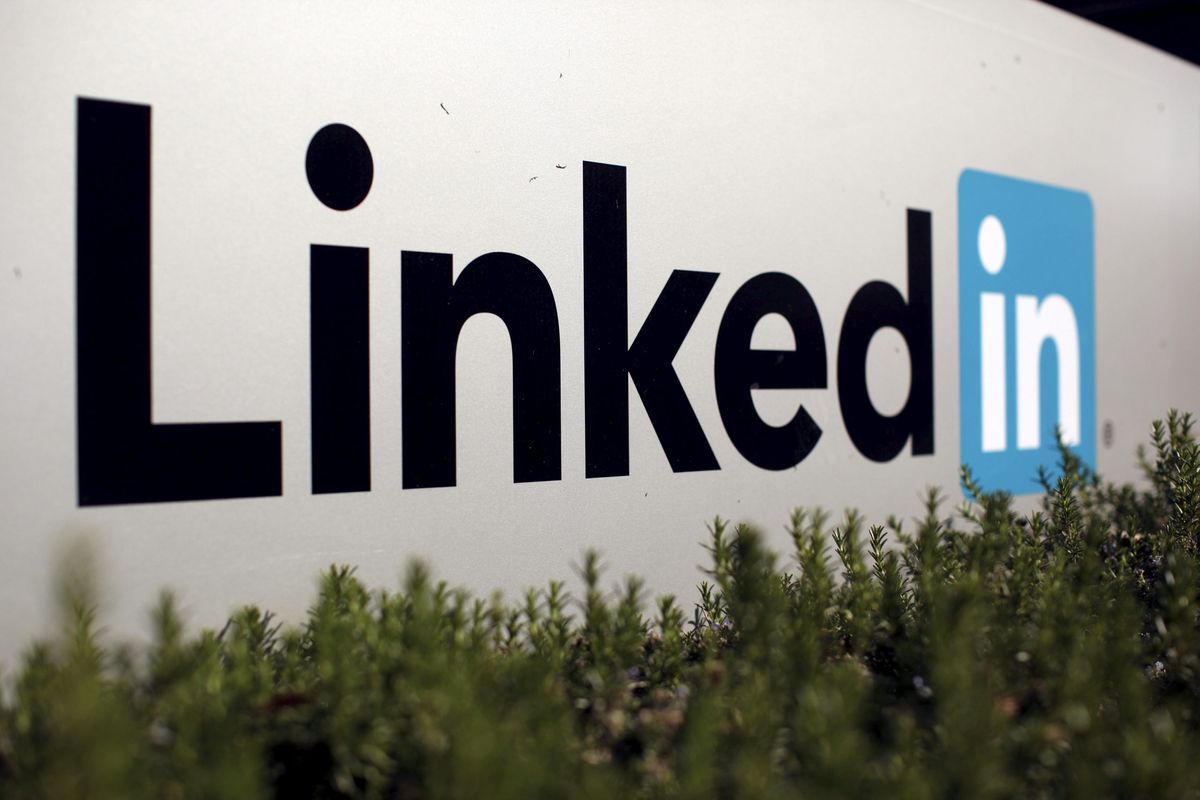LinkedIn is launching its own service for freelancers

A few minutes every morning is all you need.
Stay up to date on the world's Headlines and Human Stories. It's fun, it's factual, it's fluff-free.
The service will allow LinkedIn’s 740 million users to book freelance workers, tapping into a market that’s seen notable growth over the past year.
The career networking platform LinkedIn is preparing a new side-gig service called Marketplaces that will directly compete with similar platforms such as Upwork and Fiverr, according to a new report from The Information.
The freelance service, supposedly set to launch as early as this September, will allow LinkedIn’s nearly 740 million users to find and book freelance workers, tapping into a market that’s seen notable growth over the past year. LinkedIn’s massive user base could give it a leg up in its competition with other market leaders.
Marketplaces will likely replace ProFinder, a feature that already exists on LinkedIn that allows users to propose and apply for freelance jobs. As it stands now, the service charges a monthly fee for freelancers to read job proposals, but the income for the company is minimal.
The freelance market is a sizable one in the United States. In 2019, 35% of the total workforce was composed of Americans who had part-time or full-time freelance jobs. According to a study done by Upwork, it’s estimated that another two million Americans joined the freelance workforce in 2020 as a result of jobs being shed during the pandemic, with about one in four Americans relying on the income they receive from their side hustle to pay their bills.
Some economists also say that as businesses look to condense their budgets, they might hire independent professionals on a freelance basis rather than hire full time employees.
The business model behind these gig economy platforms is that the platform itself takes a percentage from each transaction to freelancers. Upwork takes a 13% cut, while Fiverr takes around 27%. There is no word yet on what cut Marketplaces might take.
LinkedIn, which is owned by Microsoft Corporation, generated US$8.8 billion in revenue in 2020 through its membership subscriptions and by selling job-related ads. That’s a sizable amount when compared to the combined US$550 million that Upwork and Fiverr made last year and indicates that Marketplaces is likely to present a considerable challenge to those companies.
Microsoft has previously talked about allowing LinkedIn users to make payments through the digital wallet the company is currently developing. Discussions have reportedly involved allowing users to use this digital wallet to subscribe to certain content published on LinkedIn, to tip contributors for that content and, as is the case with Marketplaces, to pay freelancers through the platform itself.
The use of the digital wallet would be doubly beneficial for Microsoft, in that it would provide for additional business and beef up the company’s credibility as a financial technology platform.
LinkedIn isn’t the only company looking to get into the gig economy.
Facebook is rumored to be working on an extension to Facebook Marketplace that would likely work similarly to the service LinkedIn will provide. But while LinkedIn’s Marketplaces will be geared toward white collar workers, Facebook’s version will be for blue collar jobs and services like home repair and maintenance. This service would compete with sites like Angie’s List and TaskRabbit, though Facebook could ultimately pull the plug on the whole thing.
The growth of the gig economy will likely result in many of the same legal issues that ride-hailing companies like Uber and Lyft have experienced over the past couple of years. In several cities and states across the US, those companies have been dealing with questions over whether their drivers should be granted the same rights as regular employees, such as receiving a minimum wage and paid leave, among other things.
Californians voted last year that gig economy companies such as Uber and Lyft are exempted from having to classify their drivers as employees, but debates are still fierce inside and outside the US and the issue has not yet been definitively resolved.
For LinkedIn, though, the focus is on getting it off the ground.
According to The Information, the pandemic brought a rise in searches and requests for people who flagged their profiles as “open for business,” particularly in categories like software development, design, marketing and executive coaching.
But the program was first conceived back in October 2019, when a deal was made to acquire some assets from a gig economy start up called UpCounsel, which focused on connecting freelance lawyers with potential clients.
Matt Faustman, UpCounsel’s former chief executive officer and co-founder is now the Marketplaces Product Lead.
“In the future we’ll be building new ways to share more about the services you [could] offer directly through your LinkedIn profile,” Suzi Owens, a LinkedIn spokesperson, told The Information.
Have a tip or story? Get in touch with our reporters at tips@themilsource.com




Comments ()